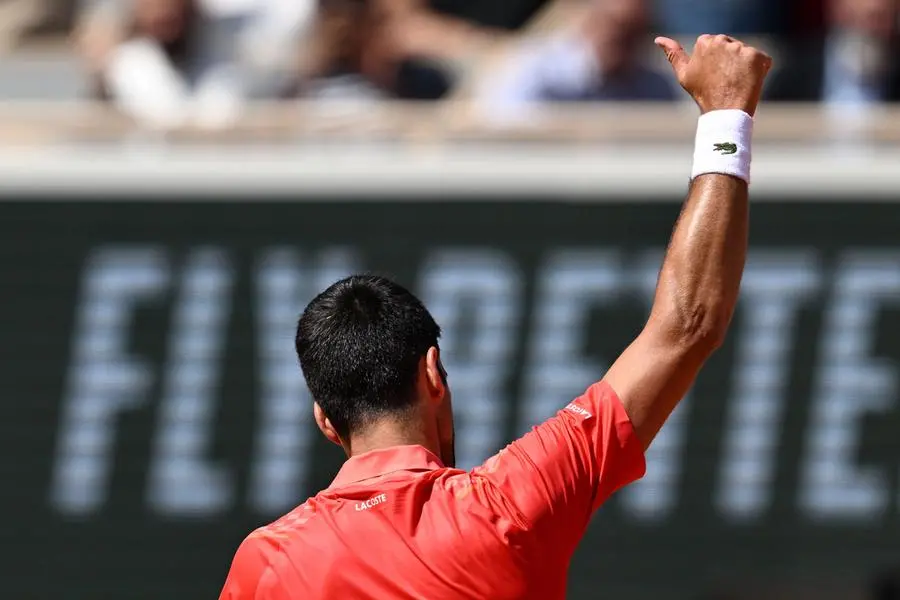PHOTO
France's sports minister condemned Novak Djokovic on Wednesday after he wrote a message saying Kosovo was at the "heart of Serbia" following his victory in the opening round of Roland Garros.
The Belgrade-born tennis superstar scrawled "Kosovo is the heart of Serbia. Stop the violence" on a camera on Monday in Paris amid clashes between ethnic Albanians and Serbs in the territory.
Kosovo, mostly populated by Muslim ethnic Albanians, broke away from the then-Yugoslavia in the late 1990s and declared independence in 2008, in a move that has never been accepted by neighbouring Christian-majority Serbia or its ally Russia.
French Sports Minister Amelie Oudea-Castera told broadcaster France 2 that Djokovic's message was "not appropriate, clearly".
"There's a principle of neutrality for the field of play. When you carry messages about defending human rights, messages that bring peoples together around universal values, a sportsperson is free to express them.
"But in this case it was a message that is very activist, that is very political. You shouldn't get involved, especially in the current circumstances, and it shouldn't happen again," added Oudea-Castera, who is the former head of the French tennis federation.
She added that the director of Roland Garros had spoken to Djokovic and his entourage.
Thirty peacekeepers from a NATO-led force in Kosovo were injured in clashes with ethnic Serb demonstrators on Monday during protests about the installation of ethnic Albanian mayors in northern Kosovo.
With tensions running high, the European Union and other Western countries have called for calm.
Djokovic, ranked number three in the world, has defended his message.
"Kosovo is our cradle, our stronghold, centre of the most important things for our country... There are many reasons why I wrote that on the camera," the 36-year-old told Serb media at the tournament.
"Of course it hurts me very much as a Serb to see what is happening in Kosovo and the way our people have been practically expelled from the municipal offices, so the least I could do was this," added Djokovic, whose father was born in Kosovo.





















